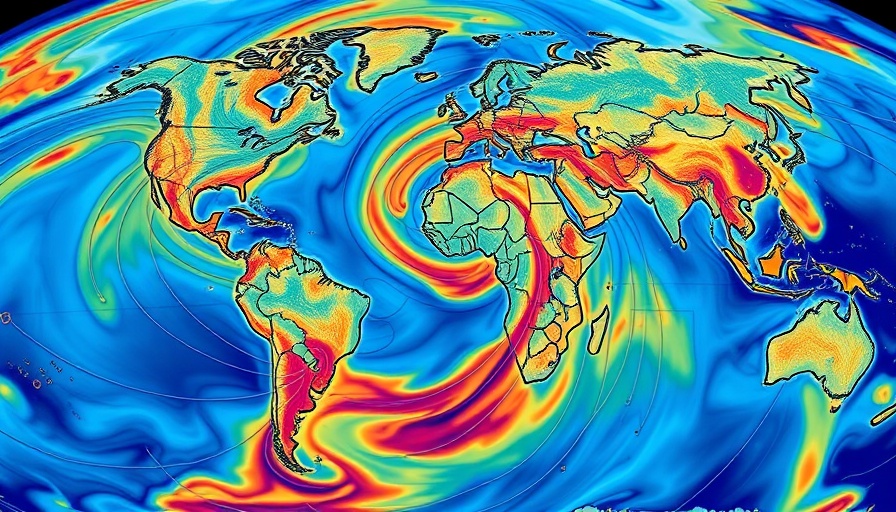
Understanding the Weather Within: How Anxiety Affects Daily Life
The weather isn't merely a measure of atmospheric conditions; it also reflects the internal states of the mind. For many, particularly those suffering from anxiety disorders, the influence of environmental changes can exacerbate difficult emotions and lead to heightened feelings of panic or distress. Anxiety symptoms such as excessive worry, restlessness, and even physical manifestations like panic attacks can be intensified by external stresses such as economic uncertainty, social pressures, and the overarching stigma surrounding mental health issues.
Unpacking Anxiety Disorders: A Growing Concern
The prevalence of anxiety disorders is elevating at an alarming rate, particularly among vulnerable demographics including youth, women, and low-income families. Generalized anxiety disorder (GAD), social anxiety, and various phobias are becoming commonplace, leading many to seek effective coping strategies. Stress management techniques—inclusive of cognitive behavioral therapy (CBT), mindfulness practices, and relaxation techniques—have emerged as essential tools for promoting mental wellness. Furthermore, understanding the nuances of these disorders, including how they overlap with depression and other comorbid conditions, is critical in today’s mental health landscape.
Practical Coping Strategies for Anxiety and Stress Management
Implementing actionable strategies can significantly relieve anxiety symptoms. Breathing exercises, structured self-care routines, and peer support can empower individuals to tackle their mental health challenges more effectively. The importance of these strategies is underscored by research indicating that community outreach and school-based programs can create supportive environments, especially in adolescent mental health. For students, stress management is essential not only for academic performance but also for emotional well-being.
The Role of Mental Health Awareness and Education
Raising mental health awareness is paramount to combating stigma and improving healthcare access. Mental health education initiatives can facilitate better understanding among the general population, thereby reducing misconceptions surrounding anxiety disorders. Campaigns promoting mental health first aid, digital mental health resources, and training in therapeutic practices like mindfulness and meditation are now more prevalent, providing support directly to those who need it most.
Impacts of COVID-19 on Mental Health
The COVID-19 pandemic has fundamentally altered mental health landscapes in many communities. Economic stress, job loss, and isolation have contributed dramatically to an increase in anxiety and depressive symptoms. Victims of gender-based violence, particularly, have reported escalated levels of anxiety attributed to heightened living conditions during the pandemic. The necessity for early intervention and prevention strategies has never been more critical, as many people navigate new norms in a post-pandemic world.
Community Outreach: Building Support Systems
Community support is vital in addressing the mental health crisis. Initiatives like peer support groups, online resources, and teletherapy are bridging gaps in access, particularly in underserved areas. Encouraging help-seeking behavior helps reinforce that individuals are not alone, paving the way toward resilience building and recovery. Furthermore, familial and caregiving support structures play a fundamental role in fostering emotional intelligence and nurturing mental health from within homes.
Addressing the multifaceted aspects of anxiety disorders requires a comprehensive understanding and fusibility between mental health policy, preventive measures, and community involvement. Recognizing that mental health is a collective responsibility reflects its profound impact on societal well-being. As we continue to push for innovative healthcare access and enhanced support frameworks, we must remain cognizant of the underlying conditions that give rise to these pervasive anxiety disorders.
Call to Action: Take a Step Towards Mental Wellbeing
It’s crucial for those affected by anxiety disorders to explore available resources and support networks. Whether through self-help strategies, peer support groups, or professional therapy, taking proactive steps can lead to significant improvements in mental health. Engage with local mental health organizations, learn about available services, and advocate for mental health awareness in your community. Your journey toward mental wellness begins with you—let's break the stigma together.
 Add Row
Add Row  Add
Add 




Write A Comment